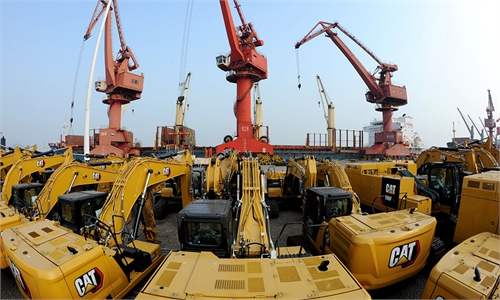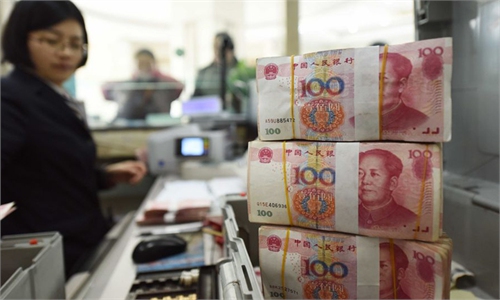COMMENTS / EXPERT ASSESSMENT
No need to amplify the anxiety surrounding China’s stock market’s drop

Illustration: Tang Tengfei/GT
The sharp drop in the Chinese stock market this week has sparked concern in the market, which has been used by some foreign media outlets to exaggerate the challenges China's economy faces in the second half of the year.
China's benchmark Shanghai Composite Index on Wednesday closed at 3,362 points, 5.32 percent down from 3,538 points on Monday. "The Chinese market rout is forcing money managers around the globe to re-assess the investment case for the world's second-biggest economy," the Bloomberg said.
There are several main drivers behind this round of fall in China's stock market:
Firstly, surging resurgent infections amid the latest Delta wave across the world have dimmed the prospects for global economy this year. The US on Tuesday reported 108,775 new COVID-19 cases, the 7-day average now stands at 63,248. The International Monetary Fund (IMF) on Tuesday downgraded its growth forecasts for emerging Asian economies due to the recent wave of Delta coronavirus infections across the region which has weighed heavily on its economic recovery. The looming resurgence of the pandemic actually tells global investors a clear message that it is impossible for the global economy to reach a full recovery by the end of this year.
Second, the Chinese economy grew 7.9 percent year-on-year in the second quarter of the year, missing the market forecast of 8.1 percent. Since last year, consumption has been dampened by the pandemic, with families choosing to act conservatively when it comes to use of household savings.
Third, recent natural disasters in many regions across the country have stoked fear among investors. The record rainfall and deadly floods in last week in Zhengzhou, Central China's Henan Province have caused fear sentiment and shaken the confidence among investors.
Taking into account the combination of these factors, it's understandable that investors have cashed out part of their investments in stock market, which caused an adjustment of about 6 percent in the stock market. However, it's unnecessary to be bearish on the Chinese economy. Against the backdrop of the gloomy global economy, China's economy faces challenges in the second half of the year, but it still maintains strong resilience.
A consistently outstanding area in the Chinese economy, China's foreign trade performance has far exceeded expectations since the outbreak. Although external demand may be affected by the Delta wave, China's foreign trade is expected to stand up to further tests.
To boost domestic demand, China needs to expand into new technological fields when the traditional areas have largely realized their potential. For instance, home service robots may become an emerging industry which can be comparable in size to the electric vehicle industry, if the potential needs of users are fully developed.
To maintain the current positive momentum of China's economy in the second half of the year, it's crucial to promote the digital sharing economy. Although China's digital economy has exceeded expectations in its early stages, various countries are now vigorously developing this field. China's economy has enjoyed the dividends of hard work; now it should not miss out on potential dividends created by technological innovation.
When it comes to boosting domestic demand, the networked sharing economy supported by digital technology must be rapidly developed, so that the new wave of technological changes in the Chinese economy will bring about an increase in the economic growth and create new demand. In terms of employment, new technology sectors should be promoted to allow employees to access more opportunities in the emerging industries.
The author is a professor with the School of Economics of Peking University. bizopinion@globaltimes.com.cn



